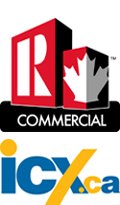Why Commercial Real Estate Is Not a Hammer and Nail Business
Syndicated Post by: Jeremy Cyrier
You've heard the expression, "When the only tool you have is a hammer, everything looks like a nail." When you have one formula for capitalizing on commercial property investments, you try to make your deals work one way.
A broker called to ask how we sold a commercial property investment he had competed against us to list. We sold the investment for 35% more than he estimated based on his review of the property's numbers. It didn't add up.
He took the owner's gross income, subtracted the vacancy/credit loss and operating expenses to derive the net operating income. He applied a market cap rate to the deal, derived the commercial property's income value, made his recommendation and hoped to be hired for the listing.
They didn't like his price.
Here's why his hammer didn't work:
The owners were debt-free on this specific commercial property.
There were 3 stakeholders hoping to sell the investment for an above market value.
Cash flow was important to one because she was retiring during the sale.
The debt market was frozen and deals were difficult to finance.
One of the owners sought to pay off a primary residence mortgage with the sale proceeds.
After our stakeholder interest analysis, we presented a solution to the owners that allowed them to convert their equity to cash flow with an installment sale. To achieve above market value, we sold the commercial property with below-market financing terms that gave the new owner ample cash flow to operate the property, pay his annual debt service, and time to secure new financing once the property was stabilized at its highest and best use.
The recurring cash flow supported the owner looking for a retirement income. We bypassed the debt market because the sellers carried the paper. And we required the new owner to make a 17% down payment, which extinguished the other owner's mortgage obligation and paid for the cost of sale.
If you haven't done an investment deal lately or are having trouble finding the "right" opportunity, start by looking at the property investment strategies you've been using. Is there a pattern in your deals that could be your hammer and nail?
To get different results, you have to try different things. Put your hammer away and ask questions in the deals you're considering. You may find new information and new opportunities that will become new ways of making your investment goals come to fruition.
Jeremy Cyrier, CCIM believes that actions without meaning are worthless. He is the President of MANSARD, a Massachusetts commercial real estate marketing and brokerage firm and is a member of the CCIM Institute faculty. You may reach Jeremy at Jeremy@Mansardcre.com or at http://www.masscommercialproperties.com.
Article Source: Why Commercial Real Estate Is Not a Hammer and Nail Business
You've heard the expression, "When the only tool you have is a hammer, everything looks like a nail." When you have one formula for capitalizing on commercial property investments, you try to make your deals work one way.
A broker called to ask how we sold a commercial property investment he had competed against us to list. We sold the investment for 35% more than he estimated based on his review of the property's numbers. It didn't add up.
He took the owner's gross income, subtracted the vacancy/credit loss and operating expenses to derive the net operating income. He applied a market cap rate to the deal, derived the commercial property's income value, made his recommendation and hoped to be hired for the listing.
They didn't like his price.
Here's why his hammer didn't work:
The owners were debt-free on this specific commercial property.
There were 3 stakeholders hoping to sell the investment for an above market value.
Cash flow was important to one because she was retiring during the sale.
The debt market was frozen and deals were difficult to finance.
One of the owners sought to pay off a primary residence mortgage with the sale proceeds.
After our stakeholder interest analysis, we presented a solution to the owners that allowed them to convert their equity to cash flow with an installment sale. To achieve above market value, we sold the commercial property with below-market financing terms that gave the new owner ample cash flow to operate the property, pay his annual debt service, and time to secure new financing once the property was stabilized at its highest and best use.
The recurring cash flow supported the owner looking for a retirement income. We bypassed the debt market because the sellers carried the paper. And we required the new owner to make a 17% down payment, which extinguished the other owner's mortgage obligation and paid for the cost of sale.
If you haven't done an investment deal lately or are having trouble finding the "right" opportunity, start by looking at the property investment strategies you've been using. Is there a pattern in your deals that could be your hammer and nail?
To get different results, you have to try different things. Put your hammer away and ask questions in the deals you're considering. You may find new information and new opportunities that will become new ways of making your investment goals come to fruition.
Jeremy Cyrier, CCIM believes that actions without meaning are worthless. He is the President of MANSARD, a Massachusetts commercial real estate marketing and brokerage firm and is a member of the CCIM Institute faculty. You may reach Jeremy at Jeremy@Mansardcre.com or at http://www.masscommercialproperties.com.
Article Source: Why Commercial Real Estate Is Not a Hammer and Nail Business




0 comments:
Post a Comment